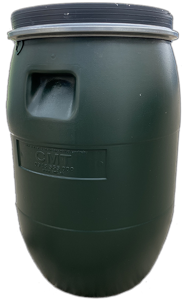Biodegradable catering waste is a current topic for all households and food-based businesses. Recent legislative changes considerably adjusted rules concerning catering waste for all the involved entities. Biowaste presents new set of legislative, administrative and organizational duties for business with kitchens.
We will carry the burden of these responsibilities

Regulation No 1069/2009 of the European Parliament and of the Council prohibits feeding of farm animals with biodegradable food waste. A farm animal is an animal kept, fed or bred by people and is used for production of food, wool, fur, feather, leather or any other product obtained from animals or for other economic purposes.
Natural or legal person in charge of a mass catering business is responsible for handling the biodegradable food waste. Based on the fact, that food waste may contain animal products, it is categorized as an animal by-product.

Catering waste is defined as any food waste, including used cooking oil, produced in restaurants, food-based business and kitchens in mass catering business and households. Biodegradable food waste includes: raw ingredients leftovers, meal leftovers of both animal and vegetable products which were produced during operating a food-based business including school canteens, social services institution canteens, hospital canteens and household kitchens. Fruit and vegetable peels, coffee and tea residuals, eggshells, stale bread, meal leftovers, expired foods or spoiled foods are also categorized as biodegradable food waste.
Your obligations, as a source of food waste, resulting from the current legislation:
- Your establishment, as a source of municipal waste, is obliged to secure and implement separation of waste, including biodegradable food waste, and is responsible for handling the waste. In accordance with the Ministry of Environment of the Slovak Republic decree No. 248/2001, which declares the waste catalogue, biodegradable food waste is categorized under n. 20 01 08 and edible fats and oils under n. 20 01 25.
- Kitchen manager covers the costs related to collecting, storing, transport and disposal of biowaste, including costs for collection containers and other containers.” By cooperating with us, certain amount of costs is passed on to us. Leave the collection containers to us. We will provide you with them for free without any rent charges.

- Your establishment, as a mass catering business is considered a source of waste responsible for its disposal. Under the contract we take over any further handling. You are free of obligations.
Other legally binding obligations of a kitchen operator connected with handling biodegradable waste, in accordance with Regulation (EU) 1069/2009 of the European Parliament and the Council and Regulation 142/2011 of the Commission, are:
- Operators of mass catering businesses collect and identify catering waste without unnecessary delay in conditions that prevent harming the public health or health of animals. Collection and disposal frequency is not legally determined. Municipality’s regulations state the suggested frequency of collection — at least once a week, depending on the temperature of an area. The methodological guidance concerning the frequency can be found on the Ministry of Environment of the Slovak Republic’s website.
- Operator in charge of loading, collecting, transport or disposal secures attaching required document to transported waste (“Waste Transfer Note for animal-by product — material of category 3: NOT INTENDED FOR HUMAN CONSUMPTION”). We will take care of all duties for you.
- Businesses which produce food waste and store it for disposal keep records of collection including relevant commercial documents (securing tracking principle) for 2 years. It is possible to keep copies on electronic devices. (in accordance with article VIII, chapter III, section 5 regulation of the Commission 142/2001).
- Mass catering managers secure separate storing of catering waste in containers, labelled as “not intended for human consumption”. We will provide you with these containers for free.